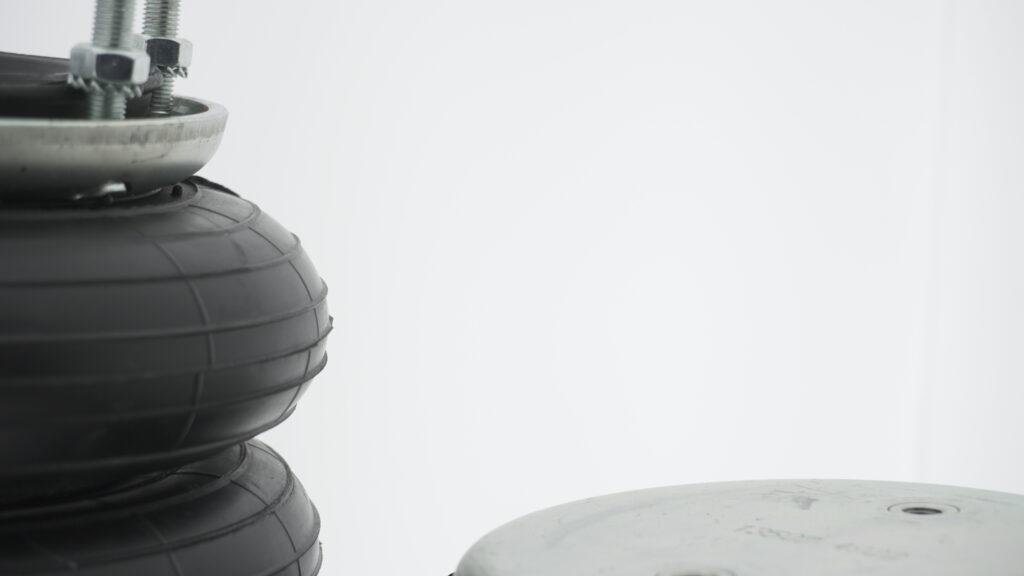
Sustainability benefits of using air bellows in manufacturing are critical for modern industries aiming for greener operations. Sustainability benefits of using air bellows include reduced material consumption because of their long service life and low maintenance requirements. In addition, air bellows made from advanced elastomers and reinforced fabrics demonstrate exceptional durability in harsh conditions. Therefore, industries avoid frequent replacements, cutting down waste generation. Furthermore, the lightweight construction of air bellows requires less raw material compared to traditional rigid components. Consequently, manufacturers can lower their carbon footprint during production and throughout operational use. Equally important, air bellows support machinery in achieving energy-efficient operation by reducing vibration and mechanical stress. This extended equipment lifespan directly ties into broader sustainability goals. Besides, the ability to use air bellows with renewable compressed air sources enhances their eco-friendliness. As a matter of fact, these features make air bellows a cornerstone technology for responsible manufacturing today.
Air bellows reduce material usage and waste generation
Reducing material waste is one of the primary sustainability benefits of using air bellows in manufacturing processes. Their design, based on high-durability natural rubber compounds and fabric reinforcements, ensures long operational lives with minimal degradation. Consequently, industries replace components less frequently, leading to significant reductions in manufacturing waste. For instance, whereas traditional mechanical springs may fail after repeated stress cycles, air bellows maintain consistent performance over longer periods. Besides, the flexibility of air bellows allows multi-application use, eliminating the need for numerous specialized parts. Moreover, their simple, repairable design minimizes scrap generation after maintenance interventions. Compared to rigid steel components, air bellows require considerably fewer natural resources during fabrication. Also, advanced elastomeric materials extend service life even in aggressive chemical or outdoor environments. Thus, adopting air bellows in manufacturing operations offers a direct path to material conservation and enhanced environmental stewardship.
Improved operational efficiency through sustainable design
Another major sustainability benefit of using air bellows in manufacturing is the achievement of operational efficiency. Thanks to their design, air bellows isolate vibrations and accommodate lateral displacements without mechanical complexity. As a result, machinery operates more smoothly, consuming less energy and experiencing fewer breakdowns. Additionally, air bellows offer height control features, reducing the need for energy-intensive compensatory systems. In fact, the ability of air bellows to function maintenance-free over extended periods ensures lower operational costs and energy inputs. Moreover, systems equipped with air bellows are better protected against premature wear, leading to fewer resource demands for repairs and replacements. Notably, this passive sustainability effect enhances a company’s overall ecological profile. Furthermore, the integration of air bellows into manufacturing lines allows for more compact and efficient designs. Thus, sustainability benefits of using air bellows permeate not only through manufacturing but also through product lifecycle management.
Emission reduction and air bellows integration
Reducing emissions is an integral sustainability benefit of using air bellows in manufacturing operations. Since air bellows facilitate energy-efficient operation, indirect emissions associated with energy production are significantly reduced. In addition, air systems using air bellows typically demand lower pneumatic pressure, further cutting energy consumption. Therefore, industries can meet stringent environmental regulations by adopting these components. Not only do air bellows contribute to lower emissions, but they also function without oil-based lubrication, avoiding hazardous waste generation. Besides, fewer equipment failures lead to reduced replacement parts manufacturing, lowering industrial CO₂ footprints. Furthermore, manufacturers implementing air bellows in assembly lines find improvements in ISO 14001 environmental management systems compliance. Hence, air bellows directly support corporate responsibility initiatives by aiding in achieving sustainability certifications. Equally, their lightweight designs require less transportation energy, reinforcing their eco-friendly profile. Thus, emission reduction becomes achievable and cost-effective through air bellows application.
